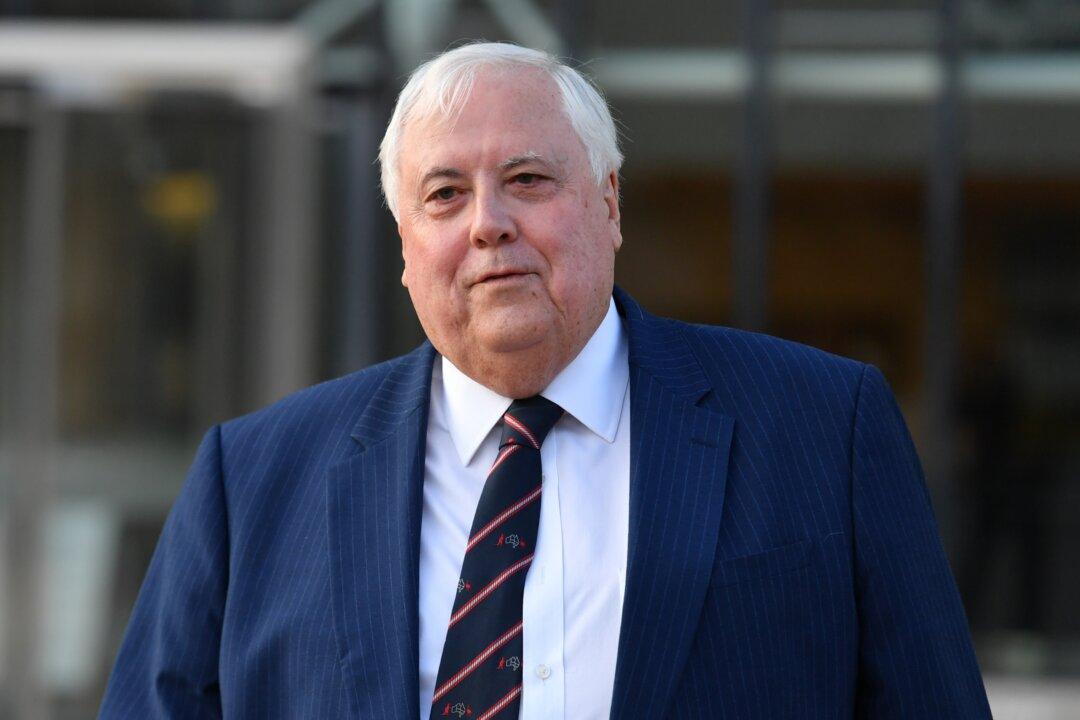Commentary
Mining magnate Clive Palmer will take the Western Australian government to court over their plan to limit entry to their state to only those vaccinated against the CCP virus.


Mining magnate Clive Palmer will take the Western Australian government to court over their plan to limit entry to their state to only those vaccinated against the CCP virus.